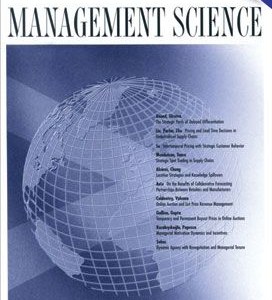
Koudstaal, M., Sloof, R. and \van Praag\, M. (2016). Risk, uncertainty, and entrepreneurship: evidence from a lab-in-the-field experiment Management Science, 62(10):2897--2915.
-
Affiliated authorsMartin Koudstaal, Randolph Sloof
-
Publication year2016
-
JournalManagement Science
Theory predicts that entrepreneurs have distinct attitudes towards risk and uncertainty, but empirical evidence is mixed. To better understand the unique behavioral characteristics of entrepreneurs and the causes of these mixed results, we perform a large {\textquoteleft}lab-in-the-field{\textquoteright} experiment comparing entrepreneurs to managers - a suitable comparison group - and employees (n = 2288). The results indicate that entrepreneurs perceive themselves as less risk averse than managers and employees, in line with common wisdom. However, when using experimental incentivized measures, the differences are subtler. Entrepreneurs are only found to be unique in their lower degree of loss aversion, and not in their risk or ambiguity aversion. This combination of results might be explained by our finding that perceived risk attitude is not only correlated to risk aversion but also to loss aversion. Overall, we therefore suggest using a broader definition of risk that captures this unique feature of entrepreneurs; their willingness to risk losses.